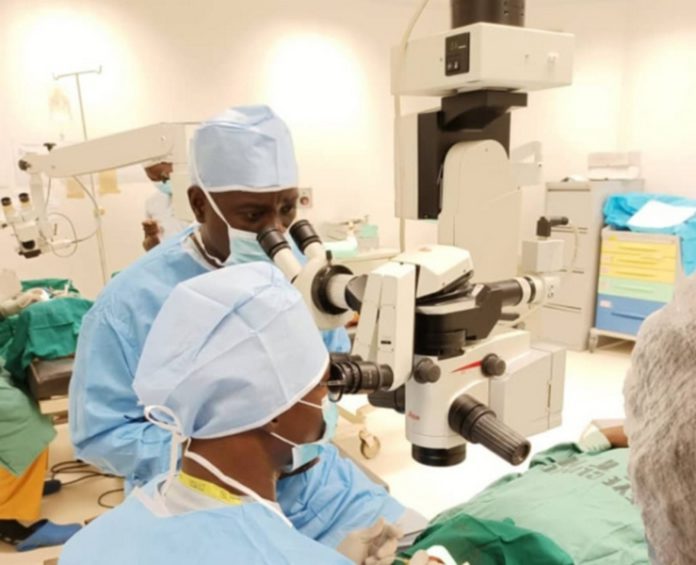Glaucoma has caused blindness of over 45,000 people in Ghana, making the country the highest with Glaucoma infections in Africa.
Data from the Ghana Health Service show that Glaucoma accounts for over 19 per cent of all blindness in the country.
Presently, eight of every 100 Ghanaian aged 30 years and above and nine out of every 100 Ghanaian aged 40 years and above have glaucoma.
Dr Hornametor Afake, Head, Eye Care Unit, GHS, told the Ghana News Agency (GNA) during the commemoration of the 2024 World Glaucoma Week.
He said: “Glaucoma is the number one cause of preventable irreversible blindness in Ghana and the world at large unlike cataract, which is reversible.”
Ghana has 0.74 per cent prevalence of blindness which translates to about 230,000 people blind. Out of this, 54.4 per cent are because of cataract.
Glaucoma is a complex group of eye disorders that results in the progressive damage of the optic nerve that connects the eyeball to the brain leading to irreversible blindness left untreated.
The major risk factors of Glaucoma include elevated intraocular pressure, people of African descent or Black race, family history, increasing age, indiscriminate use of steroids, myopia or short sightedness and long sightedness.
The World Glaucoma Week instituted by the World Glaucoma Associated is slated from March 10th to 16th and themed: “Uniting for a Glaucoma-Free World” and focuses on bringing communities worldwide to fight together against glaucoma blindness.
Global estimates indicate that currently, 78 million people suffer from all kinds of Glaucoma and 7.7 million people have moderate or severe distance vision impairment or blindness from Glaucoma.
It said 111.8 million people are predicted to have Glaucoma by 2040, with 50 per cent or more of Glaucoma is undetected in developed countries whereas 90 per cent of the cases is undetected in developing countries such as Ghana.
He said Ghana was recording more cases of Glaucoma because most people were not aware as the condition at the initial stages was asymptomatic, which made them present it at an advanced stage.
“This is why awareness creation is key for people to visit the eye clinic for screening because early detection is the way to save sight,” he added.
He said so far, the main cause of Glaucoma was not known but research had proven that there were genetic factors.
“We recommend that anyone 20 years and above have an eye examination every two years till age 30 after which an eye exam should be performed yearly,” Afake added.
Glaucoma, just like Hypertension, is a chronic disease and the treatment methods available are the use of medication such as eye drops and surgery.
Dr Afake said aside the treatment methods available, healthcare professionals especially at the primary level had been trained to pick up cases of Glaucoma early since most of the cases came from the rural areas.
He advised eye care professionals to always do opportunistic screening by going beyond the normal eye tests to pick cases of Glaucoma early.
Dr Afake called for all useful anti Glaucoma medications to be placed under the National Health Insurance because some of the medicines currently available on the market were expensive.
He emphasised the need for early detection, screening and treatment to prevent irreversible loss of sight.
ALSO READ:

